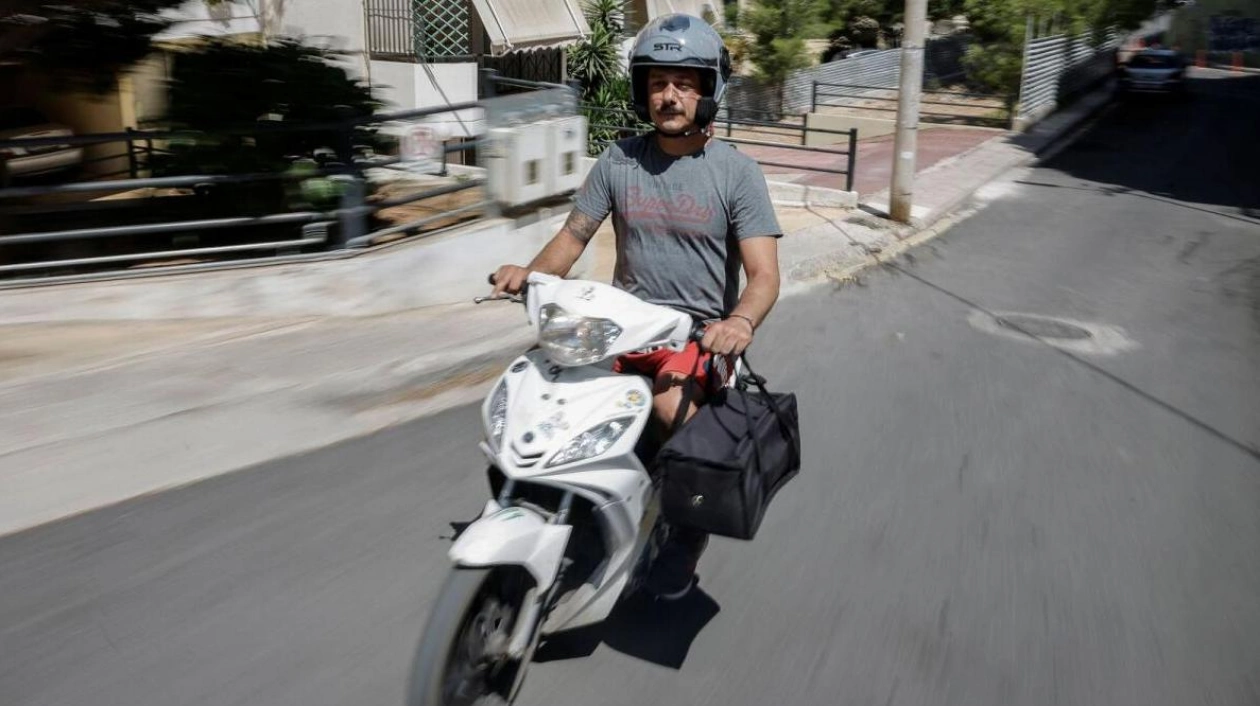Yannis Asimakopoulos, a food delivery driver in Athens with 17 years of experience, has never experienced a summer as hot as the one currently gripping Greece. This week, authorities closed all archaeological sites in Athens for the second day in a row and limited outdoor work due to the intense heatwave. Thermal cameras recorded road surface temperatures reaching about 70 degrees Celsius, yet delivery drivers on scooters continue their duties.
"Driving is extremely challenging. Wearing a helmet causes the lens to fog up from sweat, and frequent stops are necessary as the tires melt faster and the streets become slippery. Overall, the conditions are very tough," Asimakopoulos explained after finishing his shift at noon.
"Each year, I notice a significant increase in temperature, which lasts longer than before, typically just two or three days," he added. Similar to many European countries, Greece has faced numerous disruptions to daily activities since June due to high temperatures, with hundreds of wildfires erupting following the warmest winter on record, linked by scientists to global climate change.
This year marked Greece's warmest winter ever. June also set a record for the hottest month, and the current heatwave is predicted to be the longest in the country's history, according to Kostas Lagouvardos, research director at the national observatory. The government has mandated that some businesses prevent employees from engaging in strenuous outdoor activities from midday to 5pm this week, as temperatures are expected to hit 42 degrees Celsius in parts of the country.
However, for many delivery workers like Asimakopoulos, this restriction is not feasible. "Many people, especially those needing extra income for their families, will continue to work, and employers will take advantage of this," he noted. Over 20,000 drivers in Athens deliver food, beverages, and other goods, and their unions are pushing for working hour restrictions to be applied when temperatures reach 38 degrees Celsius, rather than 40 or higher.
In some areas, even the lowest recorded temperatures were 30 degrees Celsius, exacerbating the effects of heat stress on humans, according to Lagouvardos, who added, "There is no time during the day when one can feel relief from the heat."






